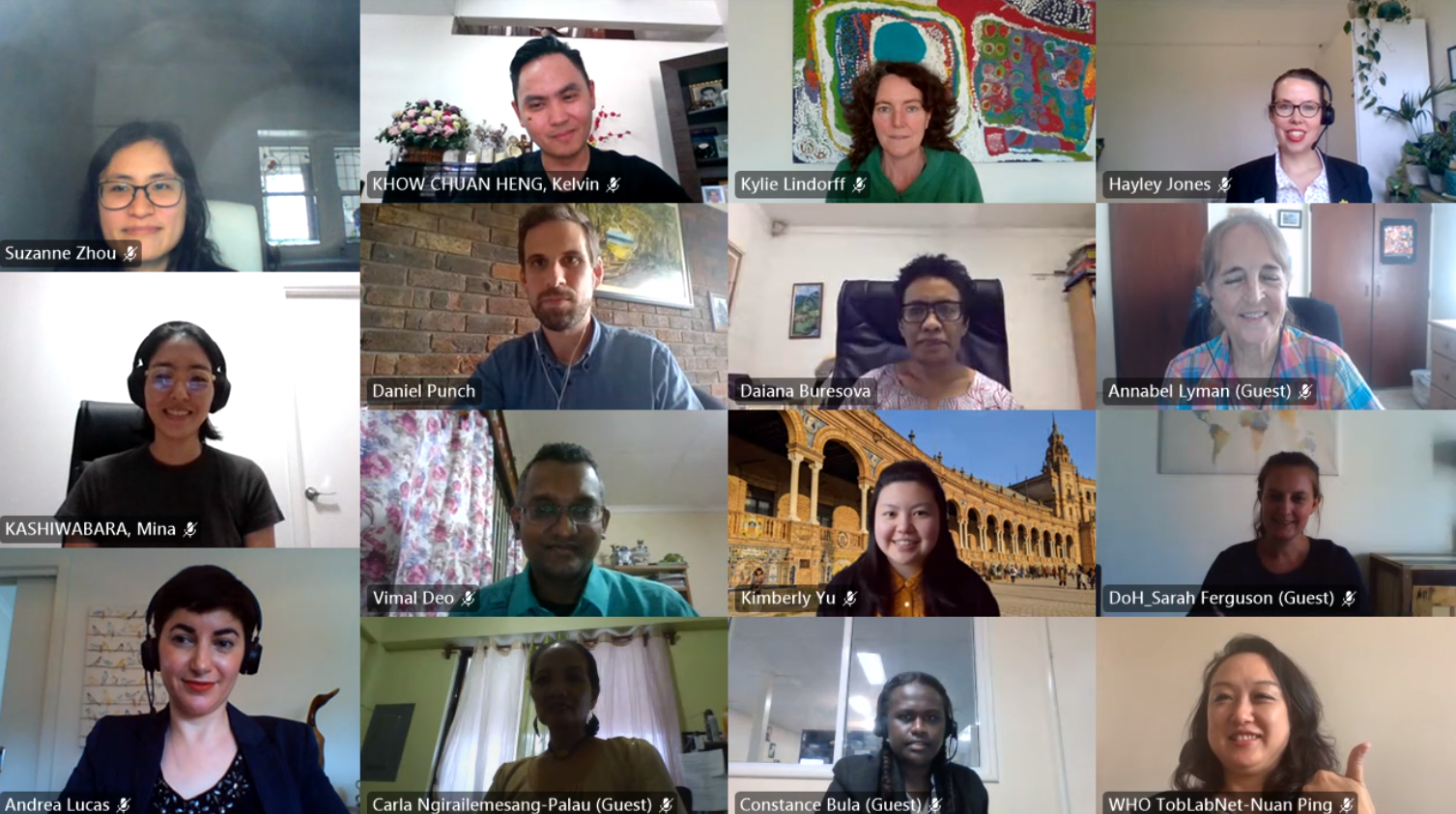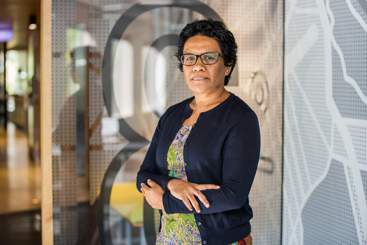
Countries in the Pacific region are pushing forward with life-saving tobacco control laws despite significant challenges. To explore ways to overcome these challenges, the McCabe Centre hosted the Pacific Tobacco Control workshop from 6-7 October 2021.
Health officials and civil society representatives from Fiji, Nauru, Palau and the Solomon Islands gathered for the two-day virtual meeting, which gave them an opportunity to share their experiences implementing tobacco control laws, hear from other countries, and learn about best practices.
It was the second McCabe Centre tobacco control workshop focused on the Pacific in 2021. In March, we hosted a workshop for more than a dozen government officials and civil society representatives from six Pacific countries.
This latest workshop focused on laws to implement smoke-free environments in line with Article 8 of the WHO Framework Convention on Tobacco Control (WHO FCTC), and how to regulate novel and emerging tobacco products.
Some countries reported that enforcement and compliance were especially challenging for smoke-free environment laws. Daiana Buresova, the McCabe Centre’s Regional Manager for the Pacific, described the role business owners must play in enforcing smoke-free laws, including by posting ‘no-smoking’ signs, removing ashtrays and taking other reasonable steps to prevent smoking on their premises. She also emphasised the importance of systems to monitor compliance and prosecute violators.
“(Countries) should specify fines or other monetary penalties for violations that should be large enough to deter violations,” Daiana said. “Penalties may also include administrative sanctions such as suspension of business licenses, or even criminal penalties, depending on the country’s legal and cultural context of the country.”
 Daiana Buresova, Regional Manager for the Pacific
Daiana Buresova, Regional Manager for the Pacific
Other countries talked about how the rise of e-cigarettes, vaping and other novel tobacco products have made enforcing tobacco control policies more complicated. Many existing tobacco control laws don’t cover these emerging products, leaving regulatory gaps.
Fiji’s Chief Health Inspector Vimal Deo discussed how his country was working to close these legal “grey areas” by seeking amendments to its tobacco control laws to include new and emerging products. Fiji is also working with closely customs officials and police services to develop a national system to track the import and export of these products.
Workshop participants also heard from guest presenters representing the Australian Department of Health, the World Health Organization (WHO) Pacific office, the WHO Collaborating Centre for Tobacco Testing and Research, the Secretariat of the WHO FCTC and the Framework Convention Alliance. Many of these discussions focused on the opportunities presented by the upcoming WHO FCTC Conference of the Parties.
All 14 Pacific countries have ratified the WHO FCTC.
The workshop wrapped up with a review of where countries can find support to implement tobacco control laws, including through the McCabe Centre’s training and capacity building programs.
“We are here to build knowledge, capacity, expertise and networks,” said McCabe Centre Director Hayley Jones. “We are always here to support you.”
***
The series of Pacific Tobacco Control workshops received funding from the Australian Government Department of Health.

Subscribe to updates from the McCabe Centre to learn more about our work to reduce the harmful effects of tobacco.